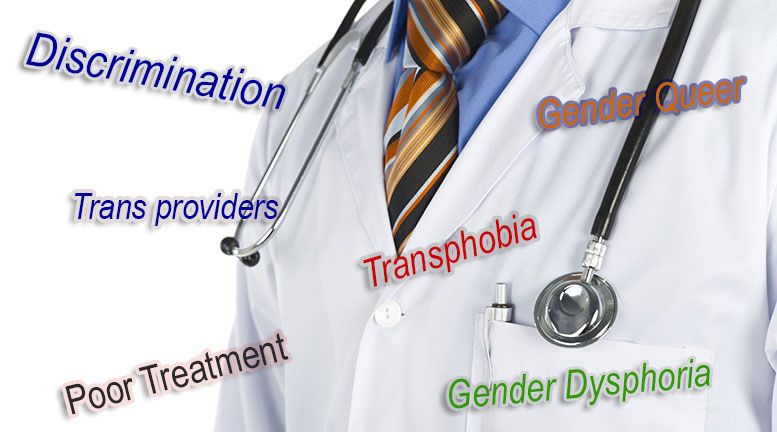By: National Center for Transgender Equality—
The Trump Administration has announced that it is planning to roll back an important regulation about Section 1557 of the Affordable Care Act, which protects transgender people from discrimination in health care and insurance coverage. Many people are concerned about what it means for them or for their transgender loved ones. The most important thing to remember is that even if the Trump Administration rolls back the regulation, health care discrimination against transgender people will still be illegal, although it might be harder in some ways to enforce your rights.
What is Section 1557?
Section 1557 is the part of the Affordable Care Act (the ACA, or Obamacare) that prohibits discrimination in health coverage and care. It bans discrimination on the basis of race, color, national origin, sex, age, and disability in health programs and activities that receive federal funding. This includes most health facilities, like hospitals or doctors’ offices, and most health insurance companies.
What is the regulation that the Trump Administration plans to roll back?
Federal agencies often adopt regulations to explain what different laws mean. In 2016, the Department of Health and Human Services (HHS) adopted a rule explaining what Section 1557 means and how it plans to enforce it. Regulations like this one don’t create new protections that weren’t already there or change the law, but they do provide important clarifications about what the law requires.
One of the key things the regulation clarified is that, when Section 1557 prohibits sex discrimination in health care, this includes anti-transgender discrimination. The regulation also clarified important parts of the law related to discrimination based on race, national origin, disability, and more. For more information, read NCTE’s FAQ about this regulation.
This regulation made it easier for transgender people to enforce their rights under Section 1557 and get access to the health care they need. But it is important to remember that even if HHS hadn’t adopted this regulation, anti-transgender discrimination in health care would have still been illegal under Section 1557. Numerous courts over nearly two decades have said that federal sex discrimination laws like Section 1557 prohibit discrimination against transgender people. HHS simply recognized the existing state of the law and formally clarified that in a regulation.
What happened to the lawsuit challenging the regulation?
After the regulation was adopted, several state officials and organizations sued HHS, saying that the regulation needed to be overturned. They hand-picked a judge in Texas who was known for ruling against the Obama Administration and asked him to temporarily block HHS from enforcing parts of the regulation while the case went forward. As they hoped, this judge ignored what the vast majority of other courts said and, in December 2016, ordered HHS to temporarily stop enforcing parts of the regulation, including the parts protecting transgender people. In a highly unusual move, after the Trump Administration came into office, the Justice Department refused to appeal the judge’s ruling. Now, the Trump Administration is saying it plans to roll back or rewrite the regulation, and as a result, the judge has put the case on hold.
What will happen with the regulation now?
We don’t know yet what will ultimately happen to the regulation. Formal regulations like the one about Section 1557 are different than guidance documents (like the guidance supporting transgender students) or executive orders: it’s much harder to roll them back. It can take months or even years to rewrite or undo a regulation, and the Trump Administration would need to first put out a draft regulation and give members of the public enough time to comment on it. We will keep fighting to make sure that the regulation stays in place and we hope you’ll join us.
But we do know that for the foreseeable future, HHS will not take any action to help people who have faced anti-transgender discrimination. There are two main ways that the protections under Section 1557 can be enforced: people who experience discrimination can sue in court or they can submit a complaint to HHS and ask it to investigate. HHS will not investigate complaints of anti-transgender discrimination for the time being, but transgender people can still file lawsuits themselves and those lawsuits will continue moving forward in the courts.
Am I still protected from health care discrimination?
Yes. No matter what the Trump Administration does, Section 1557 of the ACA is the law of the land, and most courts have said it protects transgender people. Only Congress has the power to change the law by repealing the ACA. However, the Trump Administration’s actions will likely cause confusion for many patients, providers, and insurance companies, and it could lead to more anti-transgender discrimination.
What should I do if I face discrimination in health care?
If you have faced discrimination by a health care provider, insurance company, or another health program, reach out to an LGBT-friendly legal organization to get help exploring your options. While NCTE does not take clients or provide direct legal services, you can find contact information for organizations that do here.
Also, remember that many states have their own laws and regulations that protect transgender people from discrimination in health care and insurance coverage. If you face discrimination, you may be able to file a complaint with your state’s human rights agency or somewhere else—see our Know Your Rights resource for more information.







